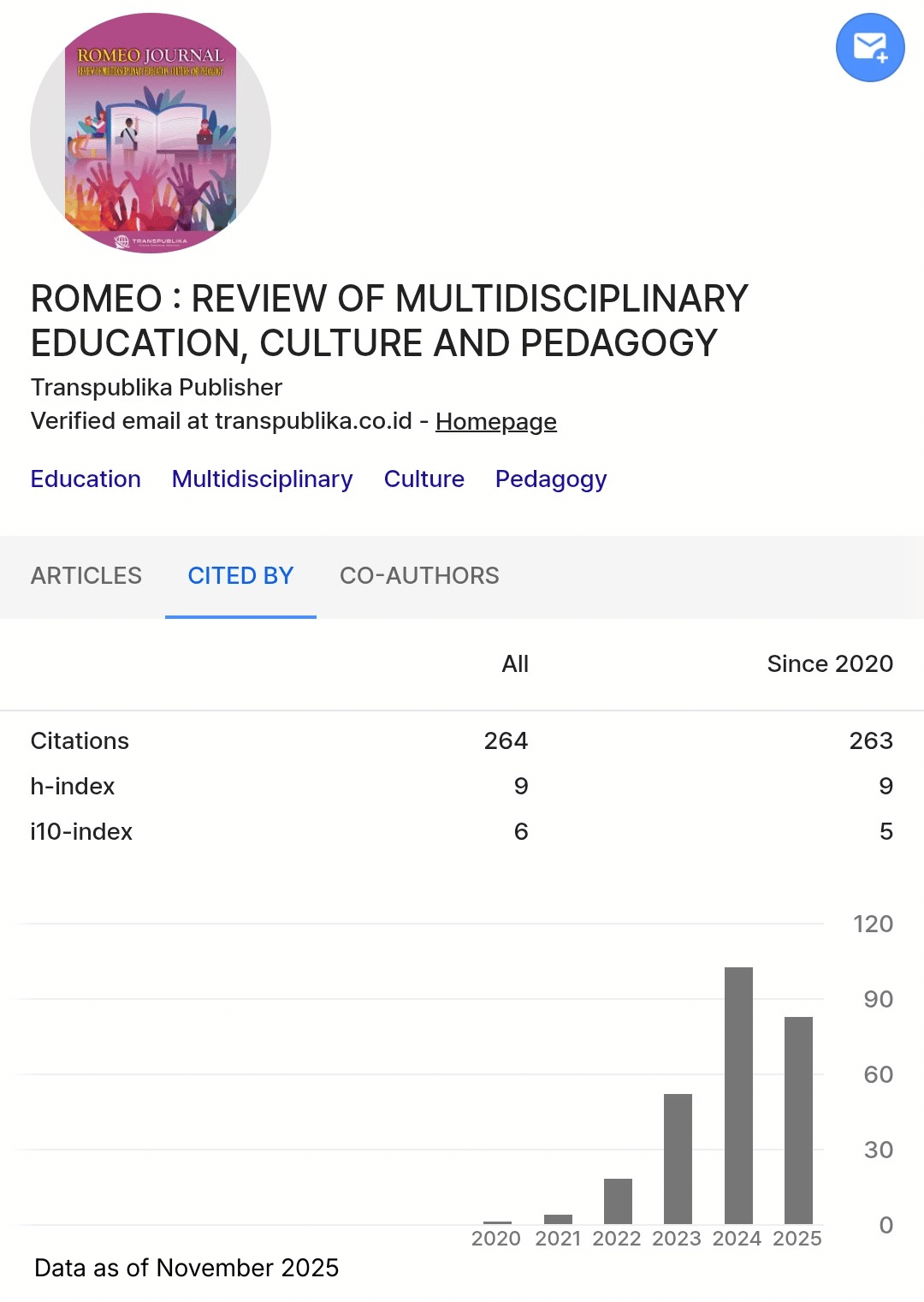An Evaluation of Mathematics Intervention Program for Struggling Students Using Provus Discrepancy Evaluation Model: Aligning Design, Implementation, and Student Achievement
Main Article Content
Jericho Y. Baybayan*
In helping academically challenged learners, mathematics intervention is important in targeting specific learning gaps with customized instructional strategies. In response to the learning losses caused by the pandemic, DepEd in the Philippines officially launched the National Learning Recovery Program, under which focused intervention in Mathematics, among others, is mandated based on evidence. This study assessed the Mathematics Intervention Program for struggling students in a Central Mindanao school using Provus’ Discrepancy Model of Evaluation. This was in line with the overall objectives of determining the expected student achievement level as defined by the program, analysis of actual student performance before and after intervention, the recognition of discrepancies worth mentioning, and recommendations for improvement of the program. According to the results, 95.2% of students before the intervention were below standard in relation to the DepEd's Most Essential Learning Competencies (MELCs) and DepEd Order No.8, s. 2015. In contrast to pre-test results, which indicated a considerable gap in student performance, the post-intervention performance showed a drastic increase in the number of students who achieved satisfactory to outstanding levels. The mean score increased from 21.32 (pre-test) to 45.31 (post-test), which means students showed increased understanding and fluency in mathematical concepts and procedures. This implies that the program has effectively dealt with the intervening factor standing between the performance of the students and the desirable level. Some recommendations put forth are institutionalizing the program, regular diagnostics, intensive training for teachers in differentiated instruction and formative assessment, improvement of learning resources, and parental involvement.
Baybayan, J. (2024). An Evaluation of General Mathematics Course using Countenance Stake Evaluation Model. International Journal of Current Science Research and Review, 7(12), 9189-9196. https://doi.org/10.47191/ijcsrr/V7-i12-60
Baybayan, J. (2025). An Evaluation of the Research Training Seminar Workshop Using Four Stages Evaluation Model. International Multidisciplinary Journal of Research for Innovation, Sustainability, and Excellence (IMJRISE), 2(3), 37-43. https://doi.org/10.5281/zenodo.14957472
Baybayan, J. Y., & Lacia, M. R. (2024). An Achievement Test in Mathematics in the Modern World Course: The Standardization Process. International Journal of Multidisciplinary: Applied Business and Education Research, 5(7), 2459-2473. https://doi.org/10.11594/ijmaber.05.07.08
Dagdag, J. D. (2019). Mathematics educators’ perspectives on outcome-based education: Alignment with the learning paradigm of tertiary education in the Philippines. Interdisciplinary Research Review, 14(3), 1–7. https://ph02.tci-thaijo.org/index.php/jtir/article/view/205117
Department of Education (2020). Basic Education Learning Continuity Plan. https://www.deped.gov.ph/wp-content/uploads/2020/07/DepEd_LCP_July3.pdf
Department of Education - Bureau of Learning Resources (DepEd-BLR) (2022) Quarter 3 – Module 1 Describing Mathematical System. https://depedtambayan.net/wp-content/uploads/2022/01/MATH8-Q3-MODULE1.pdf
Department of Education - Bureau of Learning Resources (DepEd-BLR) (2022) Quarter 3 – Module 2 Illustrating Axiomatic Structures of a Mathematical System https://depedtambayan.net/wp-content/uploads/2022/01/MATH8-Q3-MODULE2.pdf
Department of Education - Bureau of Learning Resources (DepEd-BLR) (2022) Quarter 3 – Module 3 Illustrating Triangle Congruence https://depedtambayan.net/wp-content/uploads/2022/01/MATH8-Q3-MODULE3.pdf
Department of Education - Bureau of Learning Resources (DepEd-BLR) (2022) Quarter 3 – Module 4 Illustrating the SAS, ASA and SSS Congruence Postulates https://depedtambayan.net/wp-content/uploads/2022/01/MATH8-Q3-MODULE4.pdf
Department of Education - Bureau of Learning Resources (DepEd-BLR) (2022) Quarter 3 – Module 5 Solving Corresponding Parts of Congruent Triangles https://depedtambayan.net/wp-content/uploads/2022/01/MATH8-Q3-MODULE5.pdf
Department of Education - Bureau of Learning Resources (DepEd-BLR) (2022) Quarter 3 – Module 6 Proving Two Triangles are Congruent https://depedtambayan.net/wp-content/uploads/2022/01/MATH8-Q3-MODULE6.pdf
Department of Education - Bureau of Learning Resources (DepEd-BLR) (2022) Quarter 3 – Module 7 Proving Statements on Triangle Congruence https://depedtambayan.net/wp-content/uploads/2022/01/MATH8-Q3-MODULE7.pdf
Department of Education - Bureau of Learning Resources (DepEd-BLR) (2022) Quarter 3 – Module 8: Applying Triangle Congruence to Construct Perpendicular Lines and Angle Bisectors https://depedtambayan.net/wp-content/uploads/2022/01/MATH8-Q3-MODULE8.pdf
DepEd Order No. 8, s. 2015. Policy Guidelines on Classroom Assessment for the K to 12 Basic Education Program. Department of Education, Philippines. https://www.deped.gov.ph/wp-content/uploads/2015/04/DO_s2015_08.pdf
DepEd Order No. 13, s. 2018. Implementing Guidelines on the Conduct of Remedial and Advancement Classes During Summer for the K to 12 Basic Education Program. Department of Education, Philippines. https://www.deped.gov.ph/2018/03/23/do-13-s-2018-implementing-guidelines-on-the-conduct-of-remedial-and-advancement-classes-during-summer-for-the-k-to-12-basic-education-program/
DepEd Order No. 13, s. 2023. Adoption of the National Learning Recovery program in the Department of Education. Department of Education, Philippines. https://www.deped. gov.ph/2023/07/05/july-5-2023-do-013-s-2023-adoption-of-the-national-learning-recovery-program-in-the-department-of-education/
Irawan, E., & Wilujeng, H. (2020). Development of an online mathematical misconception instrument. Journal of Physics: Conference Series. https://www.researchgate.net/ publication/345162423_Development_of_an_online_mathematical_misconception_instrument
Özüdoğru, M. (2016). Evaluation of 10th Grade Mathematics Curriculum of General Secondary Education Institutions. Erzincan Üniversitesi Eğitim Fakültesi Dergisi, 18(2), 832-864. https://doi.org/10.17556/jef.16337
Provus, M. M. (1971). Discrepancy Evaluation: An Approach to Local Program Improvement and Development. Pittsburgh Public Schools, PA. https://eric.ed.gov/?id=ED030957
Yazon, A. D., & Leonano, A. V., (2019). Effectiveness of Mathematics Intervention Program (MIP) among Primary School Teachers. PEOPLE: International Journal of Social Sciences, 5(2), 729-747. https://pdfs.semanticscholar.org/6c76/e8be257a52677c8e28d c6f73593d26521235.pdf












